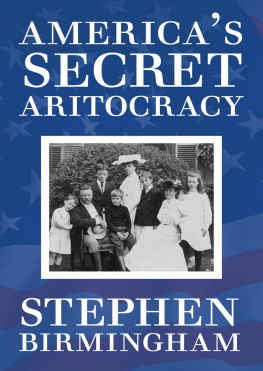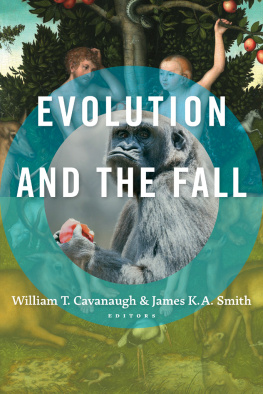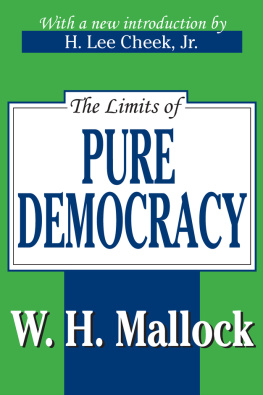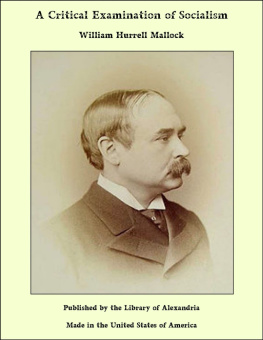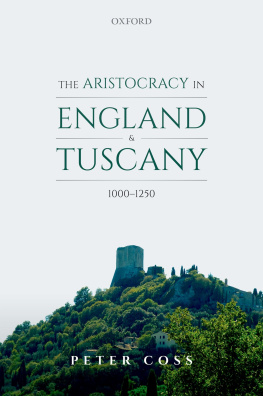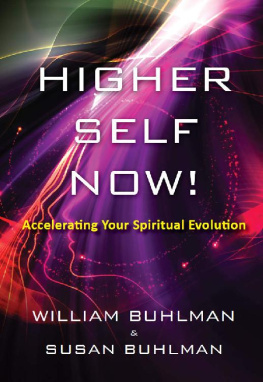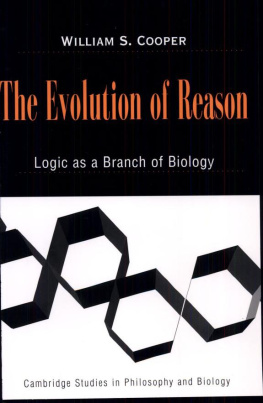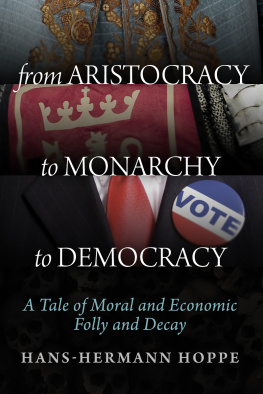W. H. (William Hurrell) Mallock - Aristocracy Evolution
Here you can read online W. H. (William Hurrell) Mallock - Aristocracy Evolution full text of the book (entire story) in english for free. Download pdf and epub, get meaning, cover and reviews about this ebook. year: 2006, publisher: Skinner Press, genre: Science. Description of the work, (preface) as well as reviews are available. Best literature library LitArk.com created for fans of good reading and offers a wide selection of genres:
Romance novel
Science fiction
Adventure
Detective
Science
History
Home and family
Prose
Art
Politics
Computer
Non-fiction
Religion
Business
Children
Humor
Choose a favorite category and find really read worthwhile books. Enjoy immersion in the world of imagination, feel the emotions of the characters or learn something new for yourself, make an fascinating discovery.

- Book:Aristocracy Evolution
- Author:
- Publisher:Skinner Press
- Genre:
- Year:2006
- Rating:5 / 5
- Favourites:Add to favourites
- Your mark:
- 100
- 1
- 2
- 3
- 4
- 5
Aristocracy Evolution: summary, description and annotation
We offer to read an annotation, description, summary or preface (depends on what the author of the book "Aristocracy Evolution" wrote himself). If you haven't found the necessary information about the book — write in the comments, we will try to find it.
Aristocracy Evolution — read online for free the complete book (whole text) full work
Below is the text of the book, divided by pages. System saving the place of the last page read, allows you to conveniently read the book "Aristocracy Evolution" online for free, without having to search again every time where you left off. Put a bookmark, and you can go to the page where you finished reading at any time.
Font size:
Interval:
Bookmark:

By W. H. MALLOCK
W. H. MALLOCK AUTHOR OF IS LIFE WORTH LIVING? A HUMAN DOCUMENT, LABOUR AND THE POPULAR WELFARE, ETC.
ADAM AND CHARLES BLACK
1898
- BOOK I
- CHAPTER I
THE FUNDAMENTAL ERROR IN MODERN SOCIOLOGICAL STUDY- Science during the middle of this century excited popular interest mainly on account of its bearing on the doctrines of Christianity
- Its popularity is now beginning to depend on its bearing not on religious problems, but on social
- Science itself is undergoing a corresponding change
- Its characteristic aim during the middle of the century was to deal with physical and physiological evolution
- Its characteristic aim now is to deal with the evolution of society
- Social science itself is not wholly new
- What is new is the application to it of the evolutionary theory
- This excites men by suggesting great social changes in the future,
- which will give a speculative meaning to the history of humanity,
- or secure for men now existing, or for their children, practical social advantages
- Men have thus a double reason for being interested in social science, and sociologists a double reason for studying it;
- and it has attracted a number of men of genius, who have applied to it methods learned in the school of physical science
- Yet despite their genius and their diligence, all parties complain that the results of their study are inconclusive
- Professor Marshall and Mr. Kidd, for instance, complain of the fact, but can suggest no explanation of it
- What can the explanation be?
- The answer will be found in the fact just referred tothat social science attempts to answer two distinct sets of questions;
- and one setnamely, the speculativeit has answered with great success;
- it has failed only in attempting to answer practical questions
- Now the phenomena with which it has dealt successfully are phenomena of social aggregates, considered as wholes;
- but the practical problems of to-day, with which it has dealt unsuccessfully, arise out of the conflict between different parts of aggregates
- Social science has failed as a practical guide because it has not recognised this distinction;
- and hence arise most of the errors of the political philosophy of this century
- CHAPTER II
THE ATTEMPT TO MERGE THE GREAT MAN IN THE AGGREGATE- Whatever may be done by some men, or classes of men, sociologists are at present accustomed to attribute to man
- Mr. Kidds Social Evolution, for instance, is based entirely on this procedure
- He quotes with approval two other writers who have been guilty of it;
- who both attribute to man what is done by only a few men;
- and the consequences of their reasoning are ludicrous
- Mr. Kidds reasoning itself is not less ludicrous. The first half of his argument is that religion prompts the few to surrender advantages to the many, which, if they chose to do so, they could keep
- The second half is that the many could have taken these advantages from the few, and that religion alone prevented them from doing so
- This contradiction is entirely due to the fact that, having first divided the social aggregate into two classes, he then obliterates his division, and thinks of them both as man
- Mr. Kidds confusion is the result of no accidental error. It is the inevitable result of a radically fallacious method;
- and of this method the chief exponent is Mr. Herbert Spencer,
- as a short summary of his arguments will show
- Mr. Spencer starts with saying that the chief impediment to social science is the great-man theory;
- for, if the appearance of the great man is incalculable, progress, if it depends on him, must be incalculable also;
- but if the great man is not a miraculous apparition, he owes his greatness to causes outside himself;
- CHAPTER I
Font size:
Interval:
Bookmark:
Similar books «Aristocracy Evolution»
Look at similar books to Aristocracy Evolution. We have selected literature similar in name and meaning in the hope of providing readers with more options to find new, interesting, not yet read works.
Discussion, reviews of the book Aristocracy Evolution and just readers' own opinions. Leave your comments, write what you think about the work, its meaning or the main characters. Specify what exactly you liked and what you didn't like, and why you think so.

